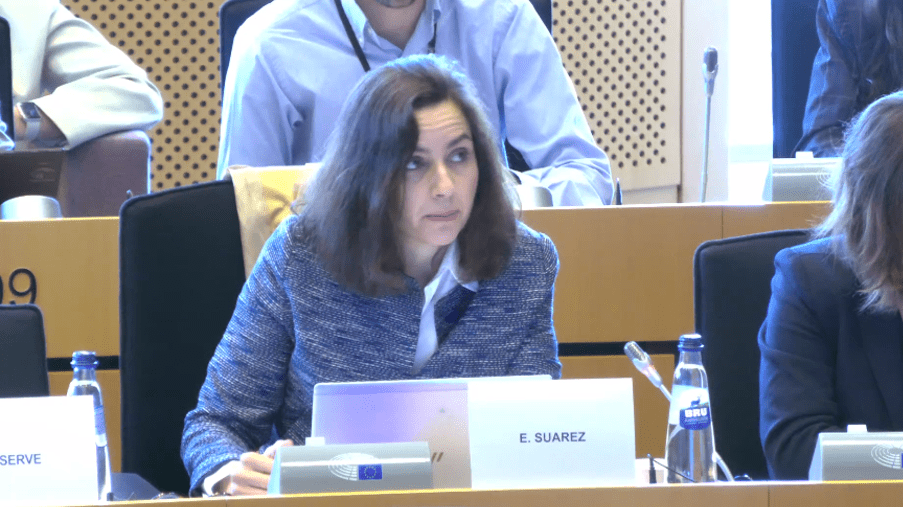
Elena Suarez, senior business representative for the Confederation of European Business.
One of Europe’s largest business lobbies has come out strongly against a potential EU-Taiwan bilateral trade deal for fear of upsetting Beijing. This was made clear at a committee meeting in the European Parliament on Wednesday, July 19th.
Representatives of the Confederation of European Business, which represents employers from across the EU and several non-EU states, said that the bloc was prioritising politics over business by seeking greater commercial ties with Taiwan to the detriment of relations with China, which maintains an irredentist claim against the island.
Business representatives were addressing a meeting of the EU parliamentary committee on international trade where MEPs were discussing future European trading relations with Taiwan.
While the EU and most member states recognise the One China policy, which does not fully acknowledge Taiwanese sovereignty, many nations, such as Italy, the Czech Republic, and the Netherlands have grown hawkish towards China in recent months.
Today in the public hearing of the #INTA on trade and investment relations with #Taiwan: If we want to keep stability in the region, we need to strengthen our relations with Taiwan. 1/2 pic.twitter.com/ytlmem3tkj
— Reinhard Bütikofer (@bueti) July 19, 2023
Speaking to MEPs Wednesday, senior business representative Elena Suarez said that the EU needed to think harder whether it wanted to make a political statement or pursue its economic best interests before angering China, and that greater cooperation with Taiwan could be achieved without a trade deal.
Her objections were echoed by Commission trade official Joanna Szychowska, who said that the EU wished not to upset an already fragile status quo by further getting into bed with Taiwan. Support for Taiwan is fraught with danger, as shown by China’s recent embargo on Lithuania after the Baltic nation opened an official office in Taipei.
A majority of MEPs want a bilateral investment agreement with Taiwan to secure strategically vital semiconductor supplies. This has been understood to be opposed by both the European Commission and Council who see any deal as politically unworkable.
The committee also heard from Cynthia Wu, a member of the Taiwanese Parliament, who said that Taiwan was an essential regional partner for Europe due to its pro-Ukraine sympathies, democratic credentials, positive economic prospects, and even embrace of EU GDPR rules.
In recent months, Italy has begun preparing to leave the Chinese-led Belt and Road initiative to sign a deal with Taiwan over semiconductors.The attitude of member states towards Taiwan are indicative of their wider stance towards China and Atlanticism.
At Wednesday’s meeting, Belgian socialist MEP Kathleen Van Brempt expressed her annoyance that political considerations with China were holding up any EU-Taiwan agreement. German Green MEP Reinhard Bütikofer said that any deal could only happen after 2025, at the earliest.
The past year has highlighted growing strain in EU-Chinese relations which had already been declining since 2020 as Brussels rolled out new pieces of legislation to reduce overdependence on China in the field of mineral resources and green technology.
The EU is increasingly inching sanctions towards China. In June, the EU Council slapped multiple Chinese technology companies with restrictions for allegedly ferrying Western-made military technology to Russia.
France has, so far, led the way on a cautious approach towards cutting economic ties with China as President Macron warned that the EU must chart its own destiny away from the United States and a messy break-up with Beijing.
